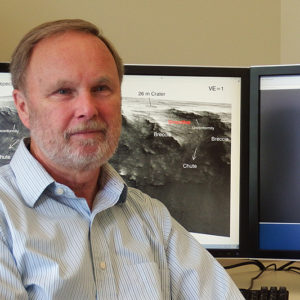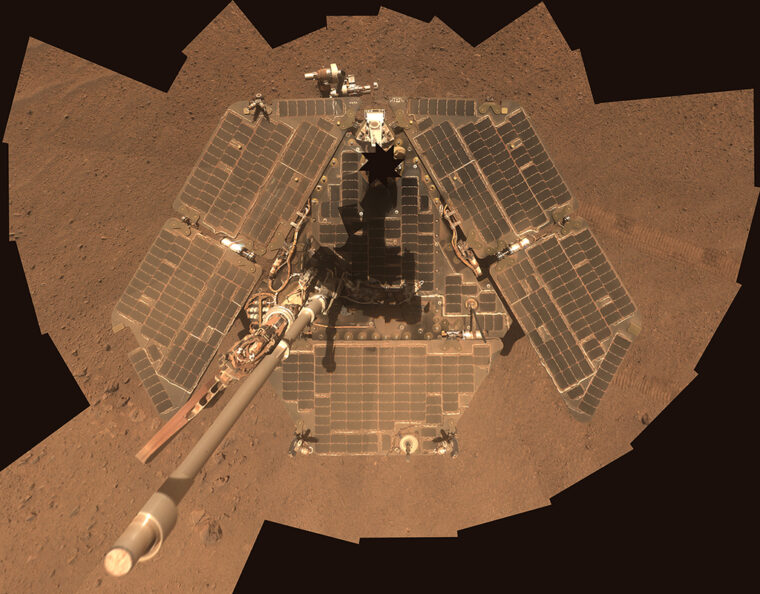When it launched in 2004, NASA expected its Mars Opportunity rover to last for 92 days.
“We had a poll on the science team in 2004, ‘What’s the latest that you think this vehicle would last?’” Raymond E. Arvidson, the James S. McDonnell Distinguished University Professor at Washington University of St. Louis said earlier this year. “I think the latest date was 2008.”
It lasted more than a decade longer than that estimate.

Arvidson, professor of Earth and planetary sciences in Arts & Sciences, was deputy principal investigator for the Mars Exploration rover. On Feb. 13, NASA officially declared Opportunity’s mission “complete.”
Both Opportunity and the rover Spirit were part of the Mars Exploration rovers mission. The two landed on Mars weeks apart in January 2004. In May 2009, Spirit got stuck in soil and NASA ended its mission in 2011. Opportunity kept on going.
“They were designed to last three months,” Arvidson told Scientific American. “NASA sent two partly because the agency wanted to hedge its bets in case one didn’t make it. No one — on the engineering team or the science team — had the foggiest idea that Opportunity would still be operating after 15 years.
“It’s just a well-made American vehicle,” he said.
Opportunity found itself in a dust storm and stopped communicating last summer.
Arvidson talked about that in a June 2018 video with HEC-TV. “(The storm) spread to a global event,” he said at the time. “The magnitude is the worst ever that we’ve seen on the planet, going back to the 1970s.” He had the added perspective of working on the two Viking landers, the first U.S. mission to successfully land spacecraft on the Martian surface and send pictures back to Earth.
In 2014, during an on-campus celebration of Opportunity’s 10-year anniversary, Arvidson said that “In rover years, Opportunity is about 300 years old.”
Five years later, he remained positive about mission.
“I’m philosophical about it,” he told HEC-TV. Other people, he said, are very much emotionally attached to the rovers. To them, he said, “They’re family members, even though they’re pieces of metal and wires.”
Now that the mission is complete, Arvidson will continue his work on Curiosity Rover, the Mars Reconnaissance Orbiter and the European Space Agency’s Mars Express rover. He also played a role in choosing the landing site for NASA’s Mars 2020 Rover, set to launch in the summer of 2020 and touch down on Mars in February 2021.
As for the end of Opportunity, he told Nature,“It’s a sad situation but not really unexpected.”
“The return on investment,” he said in the video, “scientifically, it is just amazing.”
